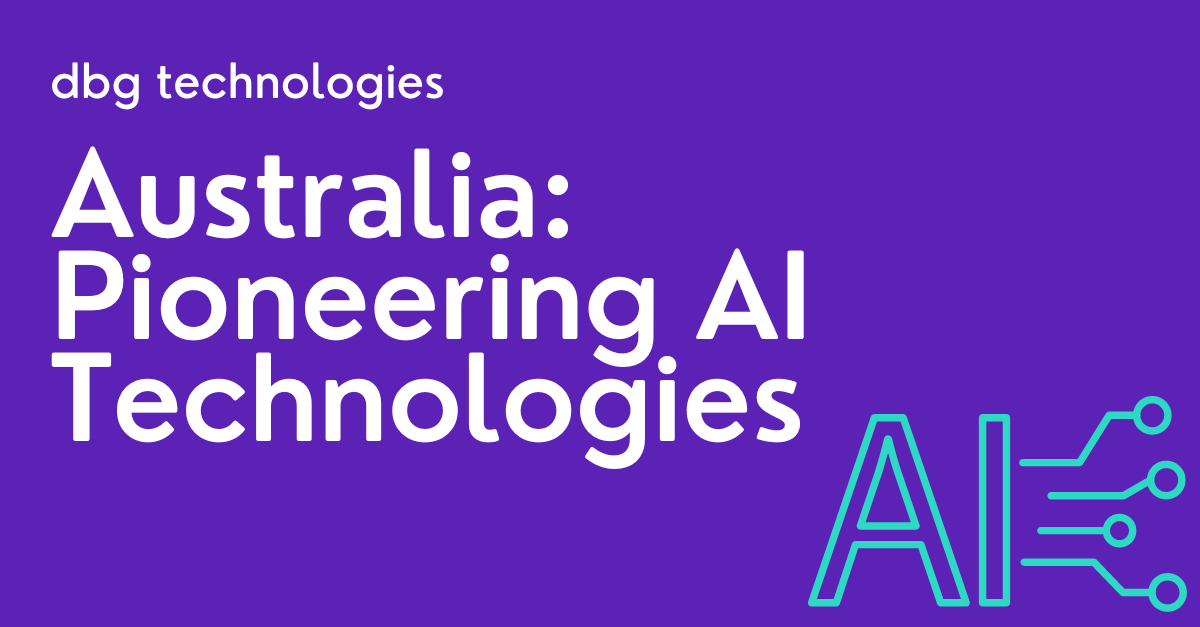 In recent years, Australia has emerged as a leading player in the global tech landscape, with its impressive advancements in artificial intelligence (AI) technologies. From innovative research institutions to forward-thinking startups, Australia has become a hotbed for pioneering AI initiatives. This article delves into Australia’s journey towards becoming a hub for AI technologies, exploring key developments, leading companies, and government support driving the nation’s success.
In recent years, Australia has emerged as a leading player in the global tech landscape, with its impressive advancements in artificial intelligence (AI) technologies. From innovative research institutions to forward-thinking startups, Australia has become a hotbed for pioneering AI initiatives. This article delves into Australia’s journey towards becoming a hub for AI technologies, exploring key developments, leading companies, and government support driving the nation’s success.
Australia boasts a thriving research ecosystem that serves as a foundation for its AI advancements. Leading academic institutions have established specialised AI research centres, which foster collaboration among researchers, scientists, and industry experts, fostering an environment of innovation and cutting-edge discoveries.
Australian researchers have made significant contributions to various AI domains, including machine learning, computer vision, natural language processing, and robotics. Their breakthroughs have gained international recognition, positioning Australia as a global leader in AI research. This has resulted in attracting top talent from around the world to contribute to the country’s AI endeavours.
Australia’s startup ecosystem has witnessed the emergence of numerous AI-driven companies that are pushing the boundaries of technological innovation. One such example is Canva, a graphic design platform that utilises AI algorithms to streamline and enhance the design process. Canva’s success story, a company created by two Australians, Melanie Perkins, and Cliff Obrecht who started the business in 2012 from their homes with an investment of $25,000, resonates with the country’s entrepreneurial spirit and its commitment to leveraging AI for practical solutions, and these trailblazing companies not only contribute to the country’s economy but also inspire future generations to explore the possibilities of AI.
In 2022, Torrens University Research Professor Seyedali Mirjalili was recognised as the world’s best AI expert. This outstanding recognition is a fitting acknowledgment of both the work of Professor Mirjalili and the growing research community at Torrens University. As the Director of Centre for Artificial Intelligence Research and Optimisation at Torrens University, Professor Mirjalili’s research focuses on how AI is used to revolutionise many aspects of our lives and solve global crises in a wide range of sectors such as food, industry and health.
Recognising the potential of AI, the Australian government has been proactive in supporting and fostering its growth. The federal government has invested substantial resources into initiatives such as the Cooperative Research Centres (CRC) program, which promotes collaborations between industry and research institutions to address real-world challenges. Several CRCs focus specifically on AI-related projects, driving innovation and commercialisation.
Moreover, the government’s National Artificial Intelligence Action Plan, aimed to position Australia as a global leader in AI ethics, responsible AI deployment, and AI adoption across various sectors, and the CSIRO’s National Artificial Intelligence Centre details how AI has changed science and what the future may hold.
Australia’s AI advancements are not solely driven by technological progress but also by a commitment to ethical AI practices and positive social impact. The nation’s emphasis on responsible AI is reflected in various universities and initiatives, such Deakin University’s The Applied Artificial Intelligence Institute (A2I2) apply AI to solve challenges no one else can, by combining world-leading lean data AI and ML expertise with a scaled-up team of full stack software engineers.
Another example is University of Technology Sydney (UTS) and their Australian Artificial Intelligence Institute (AAII), a world leading research institute in artificial intelligence with a vision to develop theoretical foundations and advanced algorithms for AI, and to drive significant progress in related areas like computational intelligence, business intelligence, computer vision, data science, machine learning, brain computer interface, bioinspired neural networks and information systems.
These organisations promote transparent and inclusive AI development, ensuring that AI technologies are ethically sound and benefit all members of society.
Australia’s AI technologies are also making a difference in areas such as healthcare, agriculture, and environmental conservation. AI-powered solutions are enabling more accurate diagnoses, improving crop yields, and enhancing wildlife conservation efforts. These applications demonstrate the positive impact that AI can have on society and align with Australia’s commitment to sustainable development.
